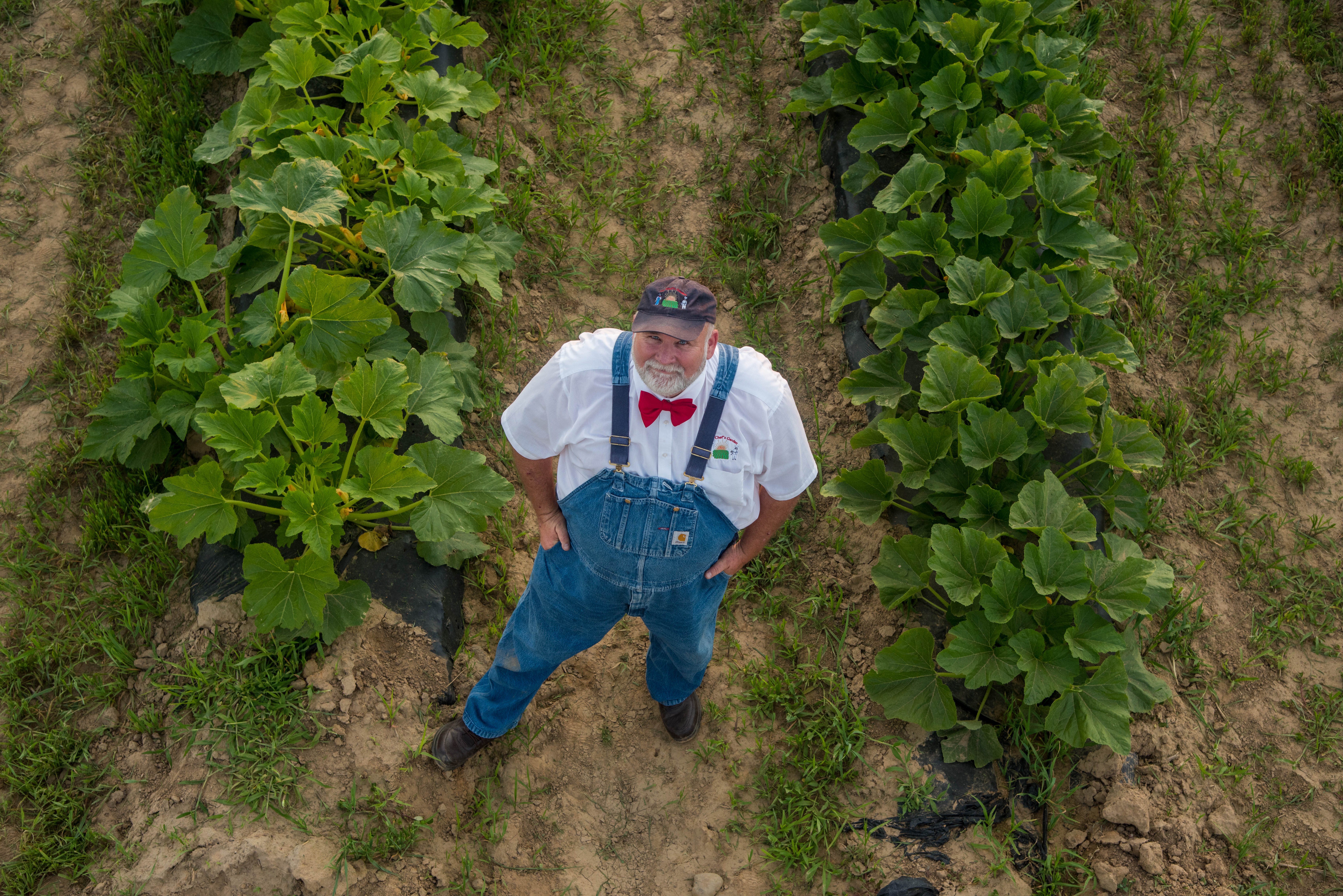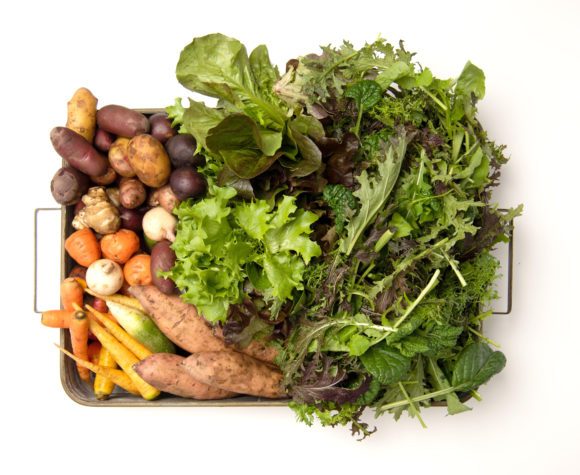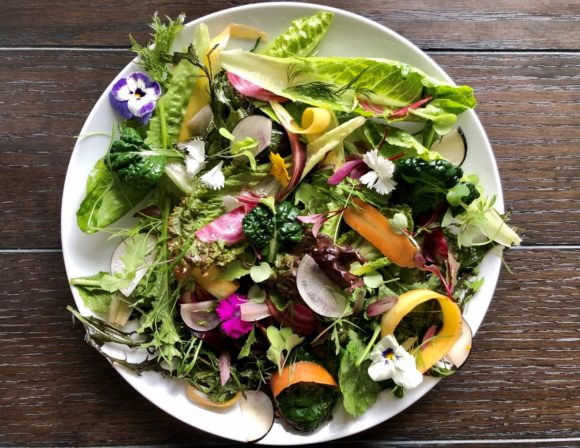FARMERS PLANT A NEW BUSINESS MODEL DURING CORONAVIRUS PANDEMIC


As COVID-19 shuttered bars and restaurants across the country last month, there were compounding effects on all who exist within the supply chain. Among the most affected? Small-scale farmers, many of whom rely on restaurant business to stay afloat. For farmer Lee Jones of The Chef’s Garden in Huron, Ohio—who grows exclusively for chefs—it felt like he’d “fallen off a cliff.”
“Overnight our entire customer base was gone,” Jones said. “For 37 years we’ve worked directly with chefs,” many of them fine dining chefs like Thomas Keller and Daniel Boulud whose restaurants are closed for the foreseeable future. Disney, whose parks are closed indefinitely for now, is a customer too.
For decades, his 350-acre family farm has grown exclusively for chefs. In order to maintain the farm’s livelihood—and the livelihood of the 150 employees with families who help tend his fields—Lee knew he needed to adapt.
Within twenty-four hours, he switched his business from chefs to home cooks: offering produce boxes on his website that ship directly from the farm to private homes. “We thought it would be a natural way to keep our team going, to have a place for the product to go, and to provide for families out there that are looking for something healthy and fresh,” Jones said. Offerings include a number of curated boxes, including the “Immunity Booster” — a variety of immune-boosting vegetables whose nutrition content is measured in their on-farm laboratory. Shipping, offered nationwide, is included in the price. “We’re not necessarily making the money on the box, but we felt some obligation to do it.”
Plus, they simply had product to sell. “Farms don’t go on furlough. You can’t flip the switch and say we’ll come back in 2 months when things are better. Every single day it needs to be nurtured and loved and cared for and coddled and as a farmer you have a very intimate relationship with your farm. It makes a farmer sick to see products coming up ready and have no place to go with them.”
The Chef’s Garden isn’t the only one. While supermarkets struggle to keep up with demand, farmers have plenty of food in their fields—and many are anxious to sell it. But with market closures and delays in many places, their farms are increasingly difficult to access.
“There are a lot of small farms suffering right now,” says Jones. “I feel a bit selfish saying that because I know that the entire world is suffering. But many of these farmers don’t have a mechanism to get the word out. We’re all trying to use our Instagrams [to connect to customers] but there’s just not much of a voice for us.”
If anything, he feels lucky. A network of big-name chefs gives him even a little bit of leverage. Most family farms across America have very little voice, he says. Often little capital. And little time to invest in changing their model. Boxing, shipping, and online ordering is an undertaking for those who spend their days in the fields. Nonetheless, these farmers are being forced pivot. On top of Community Supported Agriculture (CSA) programs, where customers pay up front and receive weekly or monthly “shares” throughout the season, many farms are offering contactless pickup and home delivery as best they can during the pandemic.
Other farmers are partnering with restaurants to sell their goods—in a symbiotic relationship that helps to keep the restaurant’s doors open and supports suppliers in the process.
Jon Shook and Vinny Dotolo—the restaurateurs behind Jon & Vinny’s, Kismet, and animal in Los Angeles—have started selling “Farm to You” boxes featuring fresh meat and produce from a slew of local farms on top of takeout and delivery. Other spots, like Lady & Larder in LA, have become pickup hubs for farms: a place where customers can safely pick up orders directly through the farms themselves.

The pivot has been challenging for many, but ultimately worthwhile. Customer interest in these models show promise. Jon & Vinny’s has consistently sold out their boxes— and some farmers are even seeing increases in business.
Farmer Lee Jones says he hopes the enthusiasm could be a silver lining in it all. Will there be a resurgence of localized food and farming economies? A renewed appreciation for quality? More trusting relationships with those that grow our food? We can only hope.
The Chef’s Garden doesn’t pick produce until an order is placed. It’s impeccably fresh. And it’s touched by few hands before it reaches the consumer; far fewer than say, the grocery store, where produce sits in trucks and shelves and warehouses for weeks before we buy it.
The pandemic, says Jones, has changed his business for good. “This has forever created a fork in the road and we will have two lanes: one for people at home direct from the farm and one for chefs. This has always been about producing something that people appreciate and people need. I couldn’t dream of walking away.”
For an open-source database of small-scale farms and producers offering pickup, delivery, and/or nationwide shipment during COVID-19, click here.

